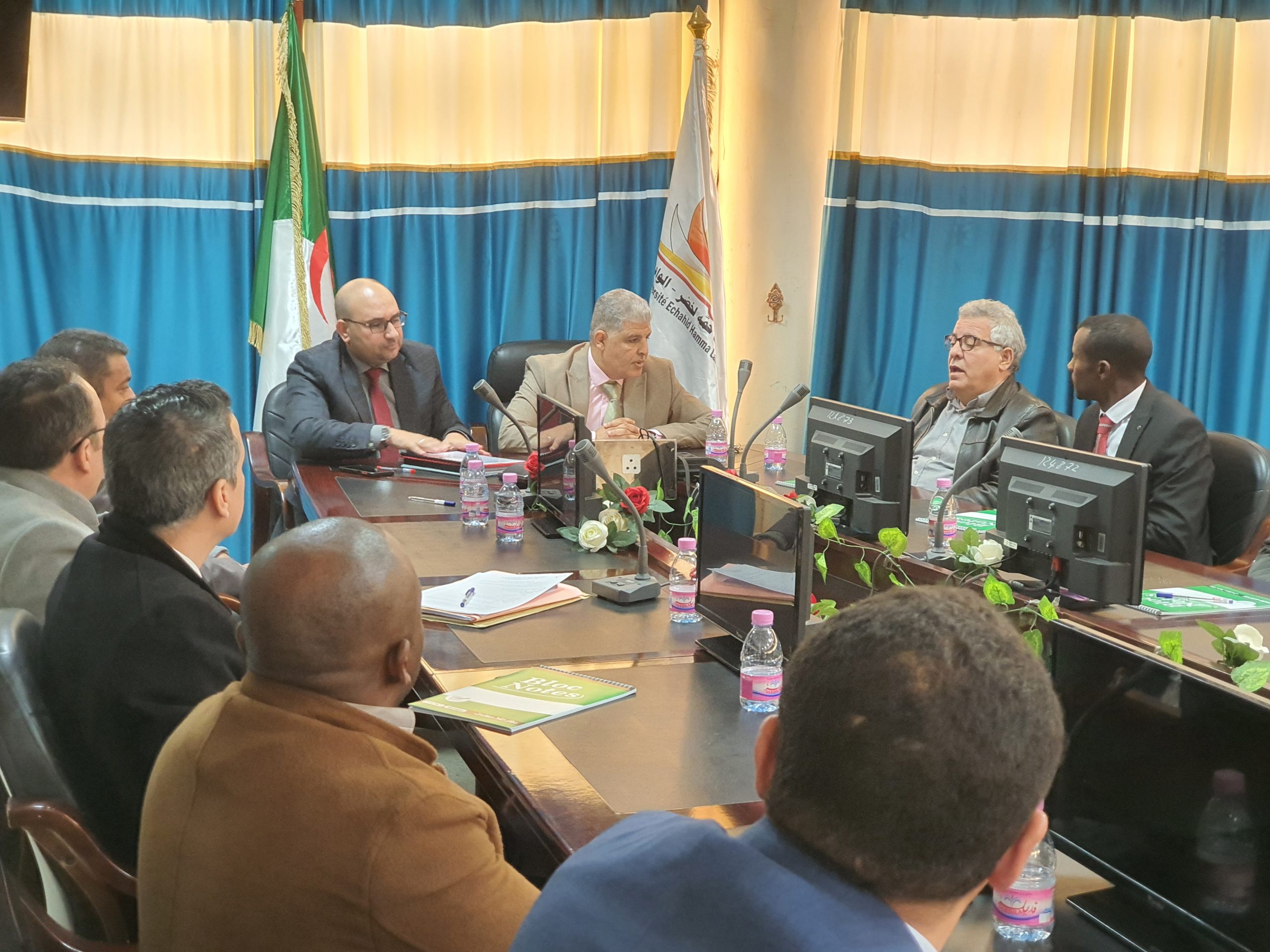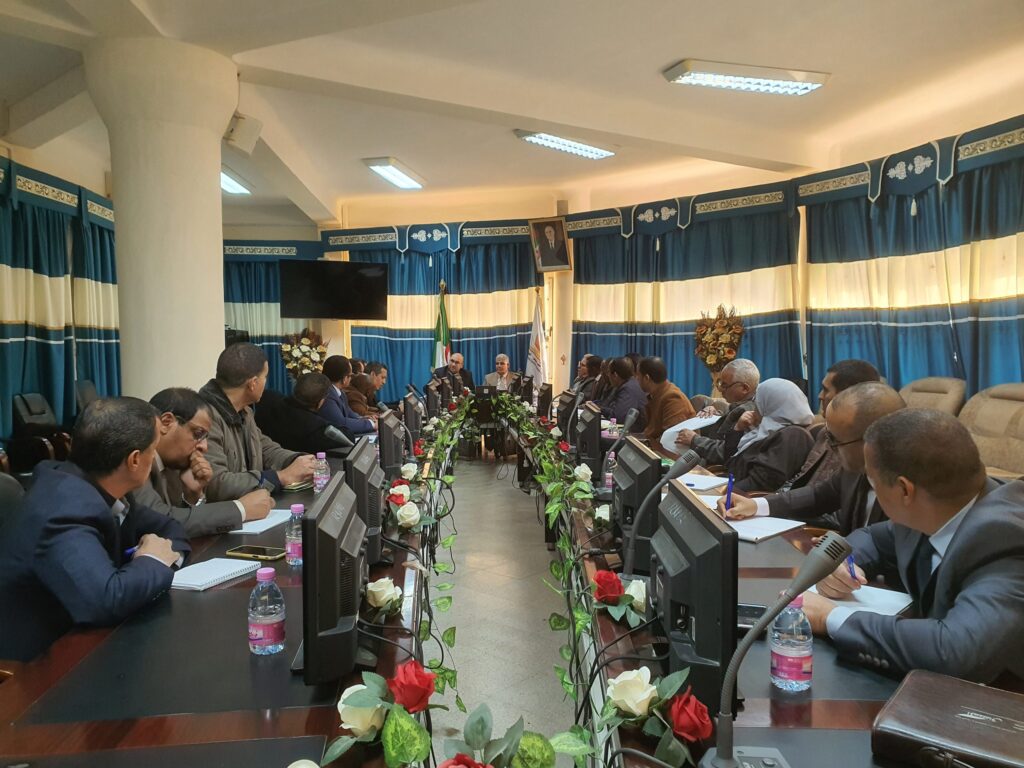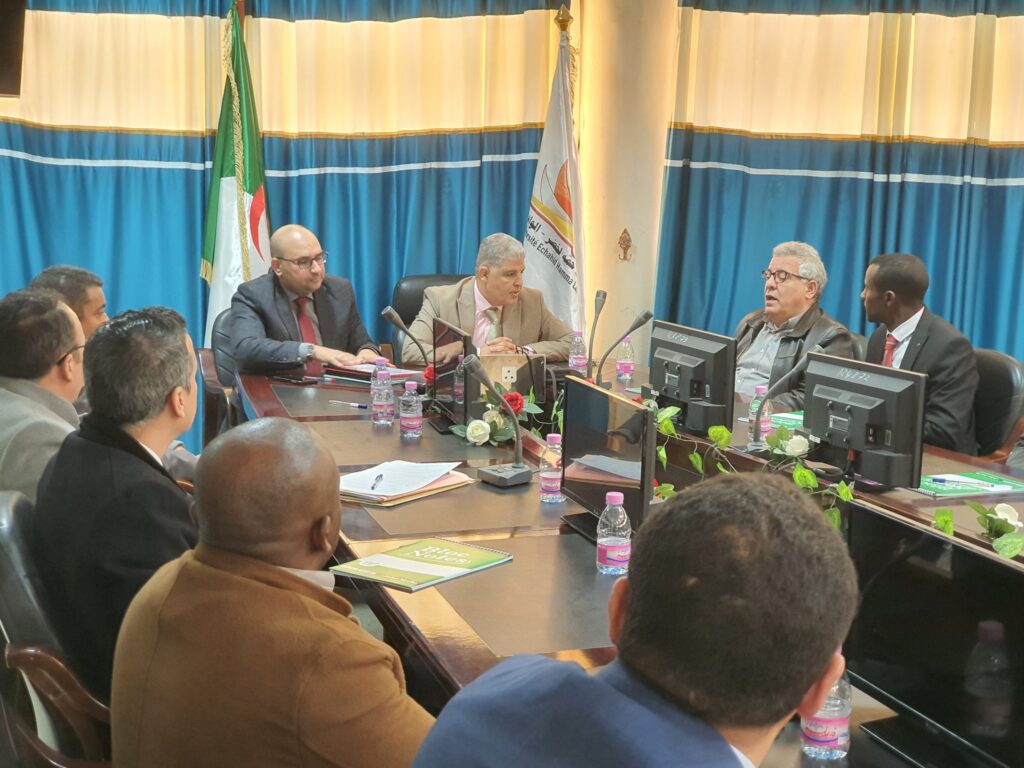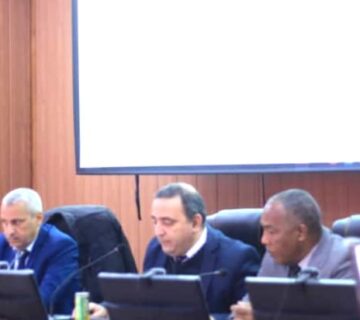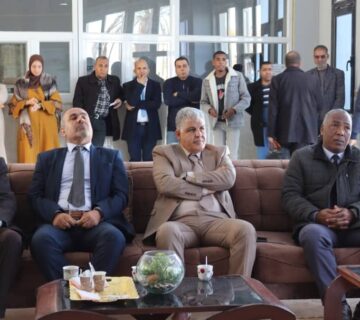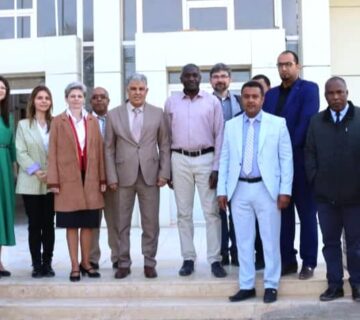The University of El Oued Hosts Regional Meeting on the Establishment of Economic Subsidiaries
The subject of sub-university institutions with an economic nature formed the focal point of the regional media and training meeting for the universities of Ouargla, Biskra, and Ghardaia, hosted by the University of El Oued on Thursday, January 5, 2023. It was supervised by Mr. Director of Assets, Resources, and Contracts at the Ministry of Higher Education and Scientific Research, and Chairman of the Ministerial Committee for Establishing Subsidiary Economic Institutions, Mustafa Tabib.
This regional meeting falls within the framework of the new orientation of the Ministry of Higher Education and Scientific Research and the directives of the Minister to establish university subsidiary institutions with an economic and commercial nature subject to commercial law to support the process of generating new resources for the university within the framework of institutional autonomy.
Professor Omar Ferhati, the Rector of the University of El Oued, welcomed the Director of Assets, Resources, and Contracts at the supervisory ministry, along with his counterpart, the Director of Planning and Foresight, Belarbi Yassin, and representatives of the present universities’ delegations. He also welcomed the Director of the Higher School of Agriculture, the Vice-Rector of the University for Research, Scientific and Pedagogical Affairs, the General Secretary of the University, the Director of the Entrepreneurship House, the Director of the Business Incubator, and the Chairman of the Five-Star Student Certificate Committee.
The University rector emphasized the importance of the subsidiary institution with an economic nature, which he considered a qualitative leap in the university’s openness to its economic and social environment, providing more space for university teachers to play a greater role in contributing to the subsidiary institution as active partners. He affirmed that the University of El Oued has a clear strategy and vision to engage in this endeavor and has initiated several projects for subsidiary institutions within the university.
In his address at the meeting, the Director of Assets, Resources, and Contracts at the Ministry stated that this regional meeting is part of enhancing the university’s openness to its economic and social environment, strengthening wealth creation, and valorizing research results and financial, material, and human resources enjoyed by universities and research institutions, making the university a driver for sustainable development.
The speaker affirmed that the series of meetings held by the ministerial committee on establishing subsidiary institutions are in line with the directives of the Minister of Higher Education and Scientific Research. He mentioned that these efforts align with the policy of the President of the Republic, emphasizing the independence of institutions and asserting that subsidiary institutions with an economic nature fall within this framework, providing revenue for the university.
He explained that the boards of directors of pedagogical and research institutions in universities discussed projects for establishing subsidiary institutions with an economic nature in December 2022, followed by meetings of the technical ministerial committee to expedite the accreditation process. Subsequently, the subsidiary institutions with an economic nature began their activities in accordance with commercial law.
The regional meeting addressed the laws allowing universities to establish subsidiary institutions with an economic and commercial nature, such as Joint Stock Companies (SPA) or Limited Liability Companies (SARL), where university professors can manage or be shareholders. He mentioned that the financing of these institutions comes from the resources generated by the activities of the parent institution and outside the budgetary sources for administration, equipment, and research, such as resources from the Intensive Language Center, service clubs, and others, with these resources constituting 60 percent of the subsidiary institution’s business volume.
The Chairman of the Ministerial Committee for Subsidiary Institutions explained that all difficulties and administrative procedures for establishing subsidiary institutions have been overcome, with about 40 university subsidiary institution projects nationwide.
Regarding facilitating the accreditation procedures, the project holder only needs to submit a file containing a report from the university’s board of directors with a business plan defining the project, its objectives, name, and the supervisory aspect, which could be from professors, employees, or students, pending regulation in the forthcoming law for the professor. Additionally, market analysis, feasibility study, marketing strategy, services provided, means, organization, and financing plan are attached to the technical card for the subsidiary institution project to be approved by the ministerial committee. He also affirmed that foreign partners can finance research or partnership with the subsidiary institution according to commercial law in response to questions from some attendees.
On his part, the Director of Planning and Foresight stated that the university has surpassed its classical missions in education and research and has become today of an economic and commercial nature, as is the case in advanced countries. He explained that the economic subsidiary institution should find deals and orders according to market needs, indicating that the university has enormous material resources and suitable scientific means for economic and commercial activities within the framework of evaluation.
Following the interventions of the Directors of Assets, Resources, and Contracts, Planning and Foresight, and the University Director Professor Omar Ferhati, a series of questions were raised by the attendees, which were answered by representatives of the ministerial committee.

